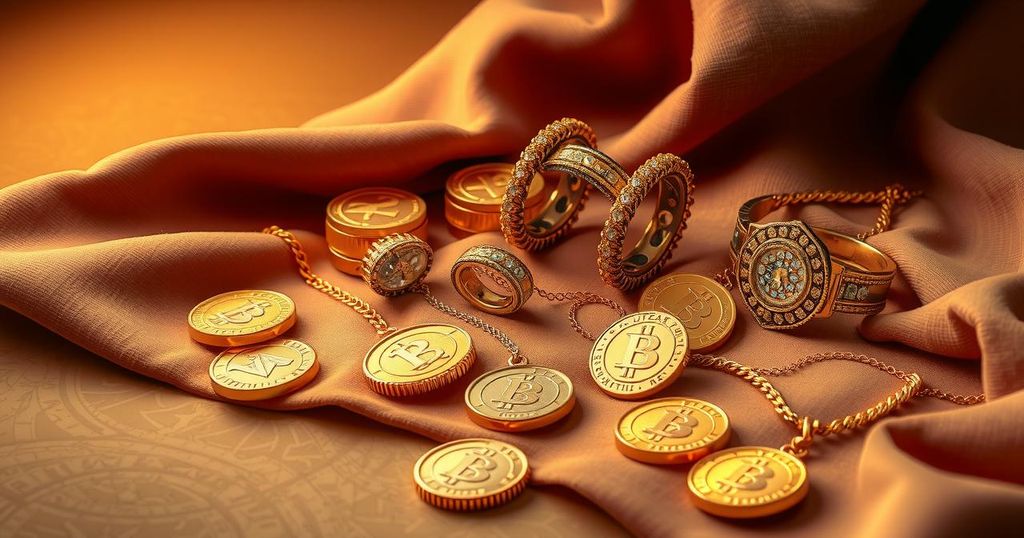The surge in gold prices in Oman, now at US$3,000 per ounce, has increased zakat obligations for many Muslim families. Despite market fluctuations, Islamic scholars emphasize that the duty to pay zakat, based on the nisab threshold of gold and silver, remains unchanged. Community members stress the spiritual importance of zakat, reinforcing their commitment to fulfilling this religious obligation regardless of economic factors.
In Islam, zakat is one of the five pillars, requiring Muslims to donate 2.5% of their qualifying wealth annually to assist those in need. This practice fosters wealth distribution and social solidarity within communities. In Oman, gold is significant for many families as both jewelry and an investment, and with current prices reaching US$3,000 per ounce—a 35% increase since March 2024—this has augmented the value of gold holdings considerably.
The rise in gold prices has led to increased zakat obligations for many, which may affect household budgets. Islamic scholar Hatim Abdul Salem emphasizes that the duty to pay zakat remains unchanged by asset value fluctuations. The nisab, or minimum wealth threshold, is traditionally defined at 85g of gold or 595g of silver. “This principle underscores the importance of fulfilling religious obligations without being affected by economic fluctuations,” he remarks.
Community members share these sentiments, highlighting zakat’s spiritual implications. Local businessman Ahmed al Harthy states, “The rise in gold prices should not deter us from our duty. Zakat purifies our wealth and souls, and its calculation should remain consistent, regardless of market trends.” Fellow businessman Salim Khan remarked, “Whether gold prices rise or fall, our commitment to this pillar of Islam must remain unwavering.”
Marketing executive Zayed Malik contributed, stating, “While gold price fluctuations can affect the monetary value of one’s assets, these do not change the essential obligation of zakat.” He urges the community to adhere to Quranic teachings and trust in their significance.
In conclusion, the rise in gold prices has notably affected zakat obligations within the Omani and wider Muslim communities. It is evident from the insights of scholars and community members alike that while market dynamics may vary, the commitment to fulfill zakat remains a steadfast tenet of faith. Zakat continues to serve as a crucial mechanism for promoting social equity and purifying individual wealth, irrespective of current economic conditions.
Original Source: www.zawya.com




